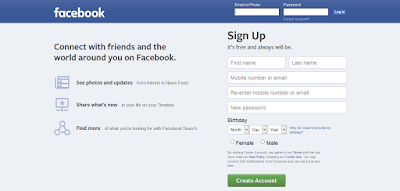Facebook (#3 on Ranking.com)
www.facebook.com
If Facebook were to be a country with Mark Zuckerberg as its effective president, it would be the largest country on the planet with about 1.65 billion citizens (or strictly speaking ‘users’) as of late April, 2016 [1]; keeping in mind that the Chinese population is just shy of 1.4 billion [2].
Money-wise, Facebook can still edge out many sovereign nations [3] with its market capitalization exceeding $ 378 billion as of January, 2017; just behind Austria and narrowly beating Norway making it the 30th wealthiest country on the planet.
There are many good things that can be said about Facebook, like: it’s free to use, there’s a lot of people to interact with, and lots of news and information can be found there, among other things.
If Facebook were to be a country with Mark Zuckerberg as its effective president, it would be the largest country on the planet with about 1.65 billion citizens (or strictly speaking ‘users’) as of late April, 2016 [1]; keeping in mind that the Chinese population is just shy of 1.4 billion [2].
Money-wise, Facebook can still edge out many sovereign nations [3] with its market capitalization exceeding $ 378 billion as of January, 2017; just behind Austria and narrowly beating Norway making it the 30th wealthiest country on the planet.
There are many good things that can be said about Facebook, like: it’s free to use, there’s a lot of people to interact with, and lots of news and information can be found there, among other things.
It’s
free to use
No
website could attract this much users if it charged registration and
subscription fees. This feature of Facebook makes it highly accessible to
practically anyone with an internet connection.
A
lot of people to interact with
Facebook
has the unique capability of connection old friends while letting you meet new
ones too. You can send each other messages, react to their posts, and get their
reactions in return as well.
Lots
of news and information
Who
has the time to watch TV or listen to the radio nowadays, right? With our
lingering need to always be online, it is very convenient that Facebook has
taken the role of being the online tally of current and relevant events.
But
of course, Facebook has its bad sides as well, such as: it’s free to use, there’s
a lot of people to interact with, and lots of news and information can be found
there, among other things.
It’s
free to use
Because
of its insistence on being a free-for-users entity, Facebook must turn to the
one reliable source of income for free service providers: advertising.
Practically all Facebook pages are infested with various ads ranging from magazine
subscriptions, to a local undergarment store.
But
all of this is harmless, right? The answer may depend upon the point of view of
the user in question. There have been allegations that Facebook may be selling
user information to potential advertisers to better tailor the ads that we see.
On one hand this could work well for us as we get to see the ads that we are
actually interested in, however for those who are particularly privacy-conscious,
this may turn out to be a touchy issue.
A
lot of people to interact with
What
could go wrong with having plenty of people out there? A lot actually. There’s
a lot of people who would talk about things that might interest you, or things
that could make you feel better in case you are feeling down; but there is also
an equal amount of people who would post stuff that would most definitely
infuriate you, and engaging in long arguments with those you disagree with can
prove to be a daunting and pointless task.
And
then of course there is the risk of interacting with online predators such as
perverts or thieves, although to be fair this risk is also very much present in
the offline world, so, hooray for the in-depth real-world simulation!
Lots
of news and information
Now
this last one here is very dangerous. Supposed ‘news’ that is unsubstantiated
or downright lies may lead to highly unfavorable circumstances such as the
disregard for valid science, the perversion of political views, online harassment,
and other things. Just think of what could happen if you get lied to, and you’ll
get the picture.
For
the time being, it would seem that the benefits outweigh the costs. Otherwise
what reason could be behind the continuous rise in its user base, if not for
the favorable perception with regards to its service? And to be honest, there's not much more to say about Facebook since it's already so common.
As
citizens of the internet, it is our challenge to introduce if not maintain
civility within the online environment, because although we might not be doing
things physically, there will always be real-world consequences for whatever we
choose to do on Facebook.
References:
[1] King,
H. (April 27, 2016). Facebook's reach gets even bigger: 1.65 billion monthly
users. CNN. Retrieved from http://money.cnn.com/2016/04/27/technology/facebook-earnings/
[2] Central
Intelligence Agency. The World Factbook.
Retrieved from https://www.cia.gov/library/publications/the-world-factbook/geos/ch.html
[3] Statistics
Times. (October 21, 2016). List of
Countries by Projected GDP. Retrieved from http://statisticstimes.com/economy/countries-by-projected-gdp.php



No comments:
Post a Comment